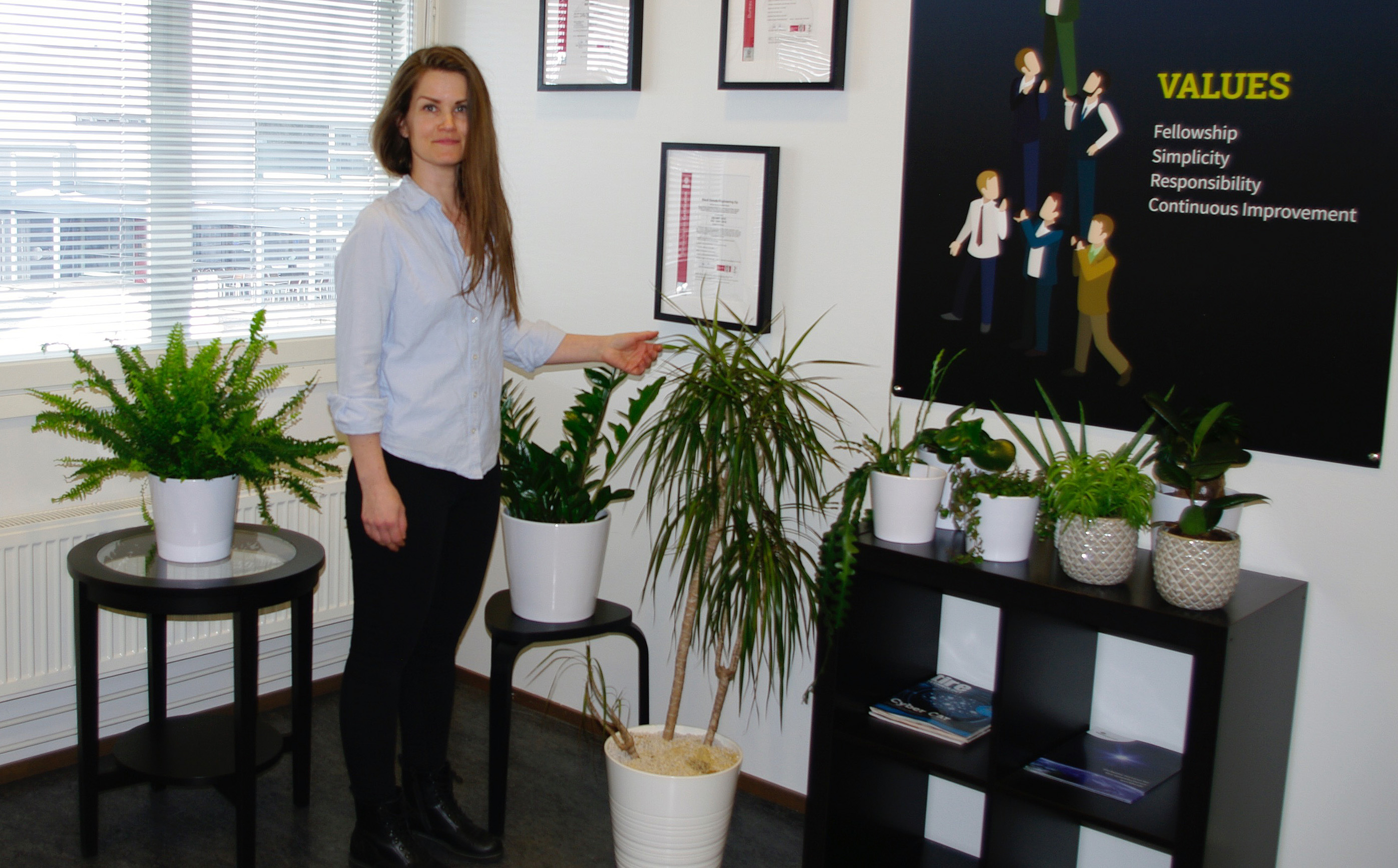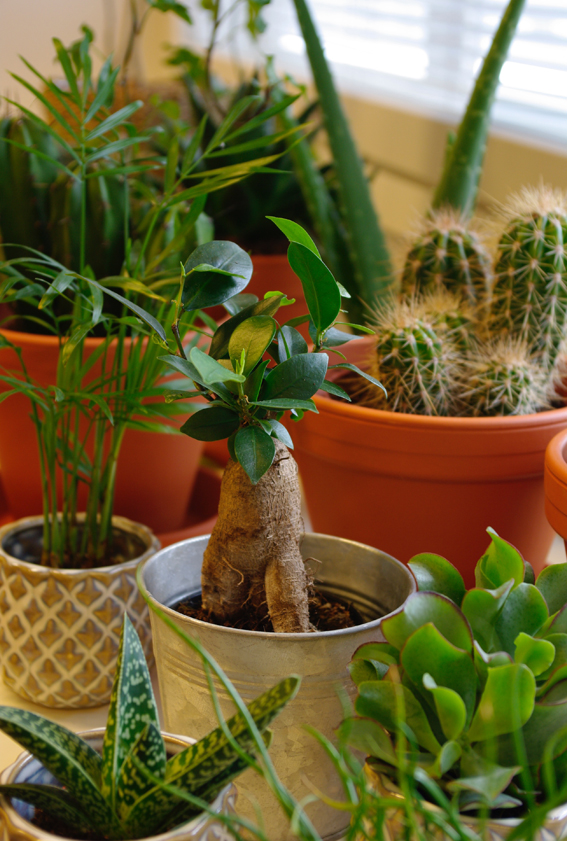Toward a greener and healthier office
Black Donuts is committed to pursuing continual improvement in environmental performance. The endeavor to make health and the environment a priority in the workplace saw a new light with the certification to the international standard on Environmental Management (ISO 14001).
When speaking of sustainable business, the focus is often on products and production. Many believe that the effect of everyday office practices on our environment is minimal. Yet the impact that offices have on the planet is significant, and there are plenty of options to improve.
Our ambition is to consider the environmental impact in our daily work by reducing our carbon footprint and creating a healthier, more pleasant work environment, says Sustainability Coordinator Johanna Nieminen.
Office greenery improves air quality
At Black Donuts, the priorities are reported in an annual environmental program. In its launch year 2021, the focus was on minimizing resource use and waste. The concrete measures included the improvement of the recycling system in the office through instructions and new sorting bins, as well as sustainability goals set on the procurement of office supplies.
We replaced our office and kitchen purchases with more sustainable, organic, and fair-trade products and shifted our focus from price to the environmental aspects of the buying decisions.
In 2022, the environmental program contains two themes: improving office air quality and reducing microplastics. First, indoor plants were incorporated into the office layout. Their benefits extend far beyond the aesthetic.
Plants clean air, produce oxygen and remove carbon dioxide. They neutralize air pollution caused by organic compounds, such as benzene, formaldehyde, and toluene. Office greenery also reduces microbes in the air and elevates air humidity levels, Johanna explains.
Water filters remove microplastics
The next action was to install faucet filters to purify microplastics out of drinking water. Most of the current water treatment plants date back to a time when microplastics were not known nor monitored. Consequently, the tap water contains microplastics that end up on our plates and drinking glasses. WWF has reported that we could be ingesting 5g of plastic every week – equivalent to a credit card – in the air we breathe, the food we eat and, most of all, the water we drink. Drinking water is the largest single source of microplastic.
By filtering our drinking water, we can reduce the amount of microplastic in our bodies and hinder it from going back to circulation.
In addition to microplastics, the new filters help reduce the bacteria, parasites, medical substances, and chlorine in the tap water.
Even outside the office, environment is a strategic driver in all Black Donuts’ operations, extending from the use of biobased materials in tires to the design of the most energy-efficient and sustainable tire factories.


